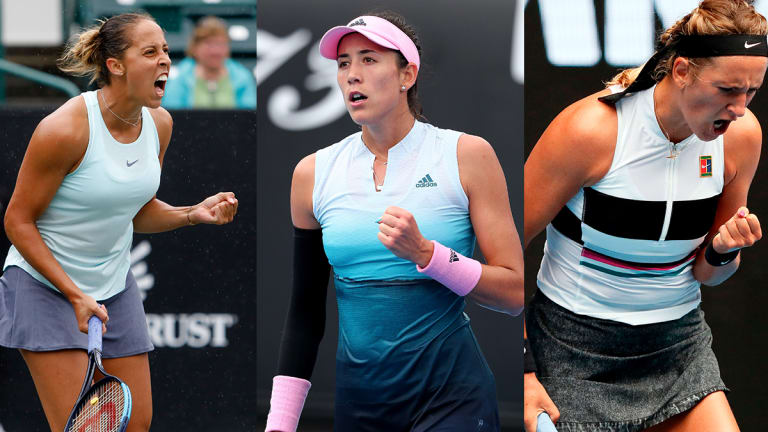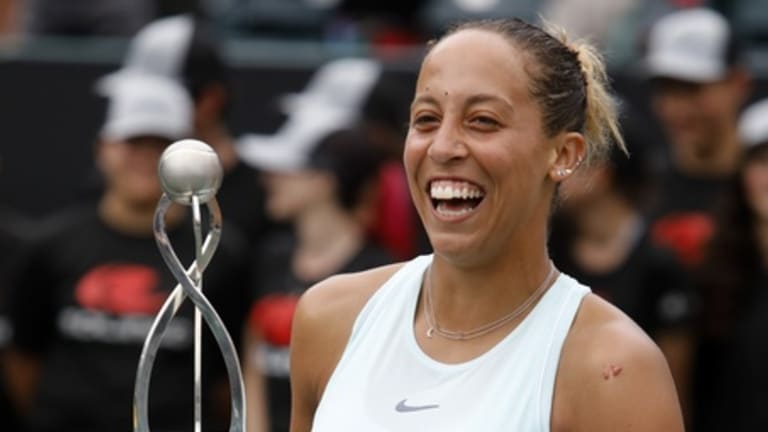WTA Monterrey, Mexico
Keys, Muguruza, Azarenka head to red clay with a lot of confidence
By Apr 08, 2019WTA Monterrey, Mexico
Leylah Fernandez saves 5 match points to beat Camila Osorio in Monterrey final
By Mar 07, 2022WTA Monterrey, Mexico
Leylah Fernandez reaches fourth WTA final of career in Monterrey, Osorio awaits
By Mar 06, 2022WTA Monterrey, Mexico
Fernandez back in "special city" and getting more wins
By Mar 04, 2022WTA Monterrey, Mexico
Ukraine's Elina Svitolina and Sergiy Stakhovsky are paragons of courage at a time when actions speak far louder than words
By Mar 02, 2022WTA Monterrey, Mexico
Where are all the WTA tournaments in South America?
By Mar 01, 2022WTA Monterrey, Mexico
18-year-old Leylah Fernandez captures first WTA title in Monterrey
By Mar 22, 2021WTA Monterrey, Mexico
Svitolina battles past Bouzkova in three hours for Monterrey title
Mar 09, 2020WTA Monterrey, Mexico
Svitolina Soars: Sweeps past Rus to enter Monterrey's final round
By Mar 07, 2020WTA Monterrey, Mexico
Elina Svitolina cools off Leylah Fernandez's hot streak in Monterrey
By Mar 07, 2020WTA Monterrey, Mexico
Keys, Muguruza, Azarenka head to red clay with a lot of confidence
The 24-year-old American and the 25-year-old Spaniard both ended long title droughts in places that feel like home to them.
Published Apr 08, 2019
Advertising

Keys, Muguruza, Azarenka head to red clay with a lot of confidence
Advertising

Keys, Muguruza, Azarenka head to red clay with a lot of confidence